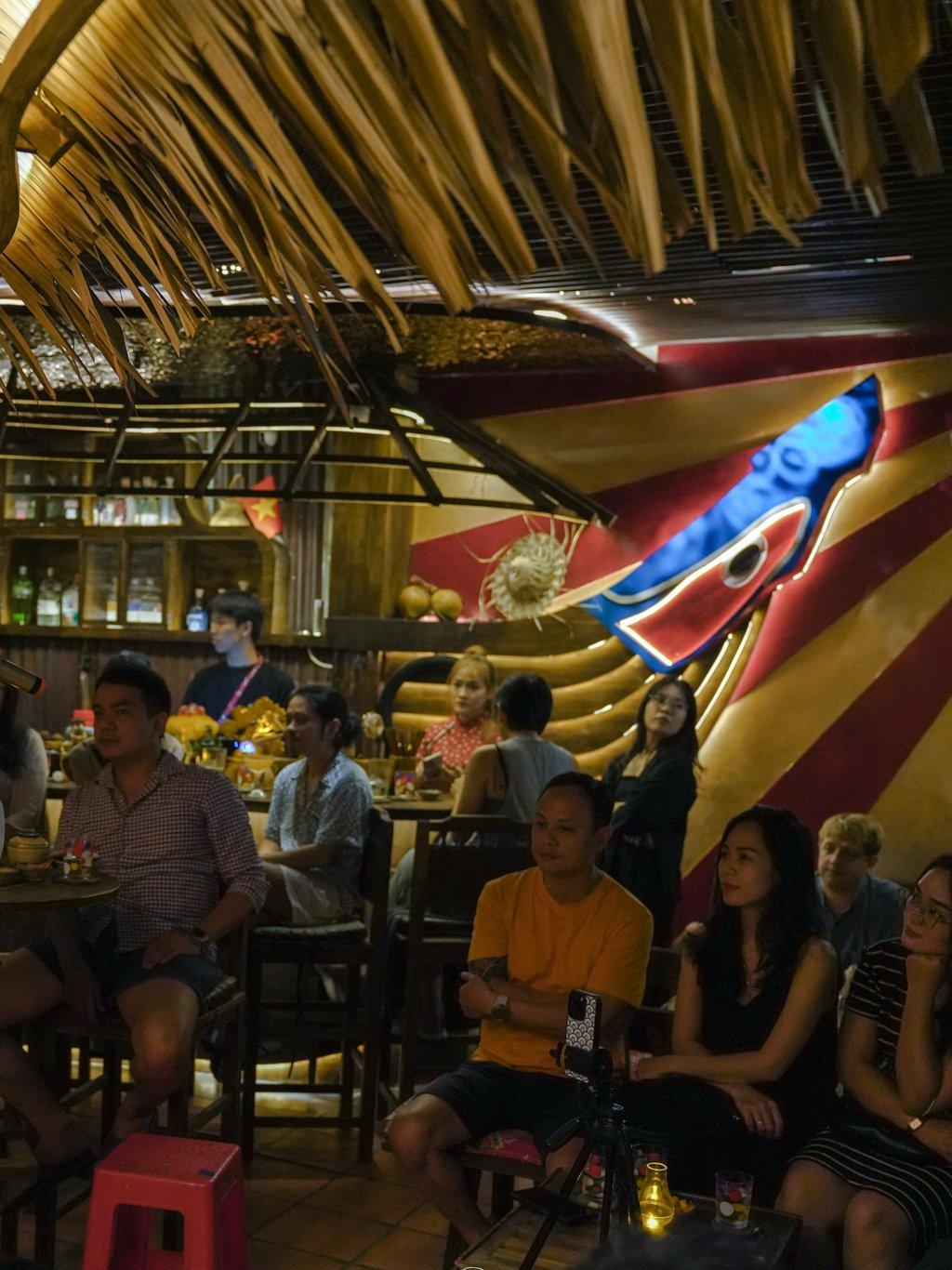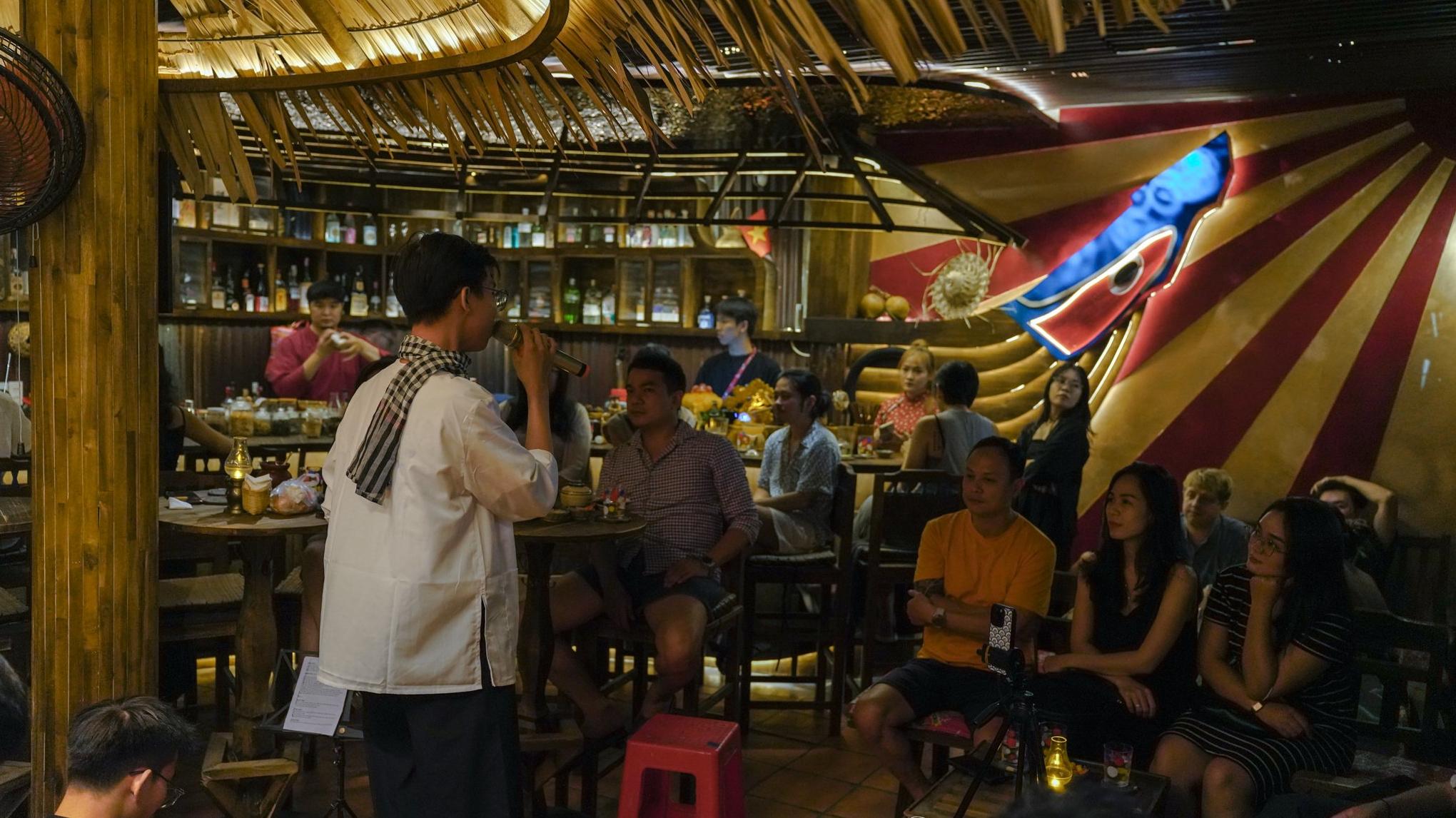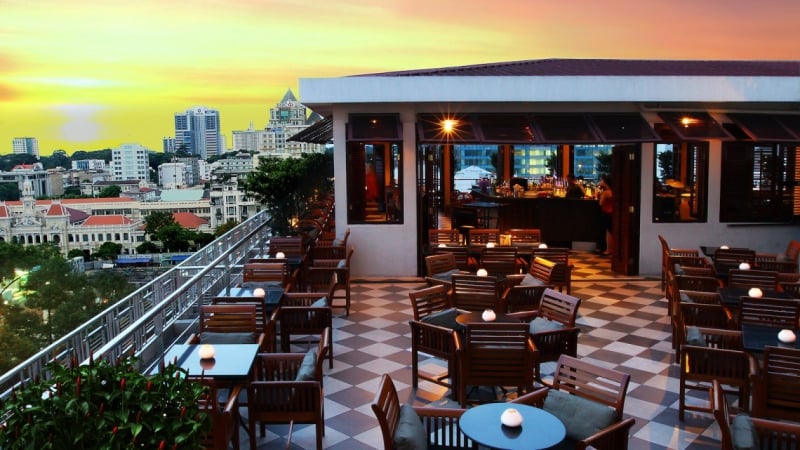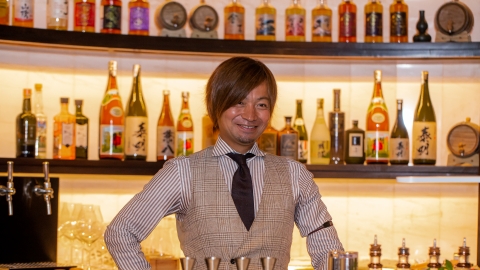A bar that evokes the feeling of home.
Opened in May, Hai Tô Bar is neatly situated on Huỳnh Mẫn Đạt street, in the heart of bustling Saigon, yet it maintains a distinctly different atmosphere. Not the dazzling Korean style, nor the elegant European-Japanese ambiance often seen, the bar embraces a clear, Southern Vietnamese spirit. The owner, Lâm Hữu Thọ, originally from Sóc Trăng, says he wants to infuse his love for his homeland into every corner, every glass of local rice wine, every note of traditional Vietnamese music in the city.
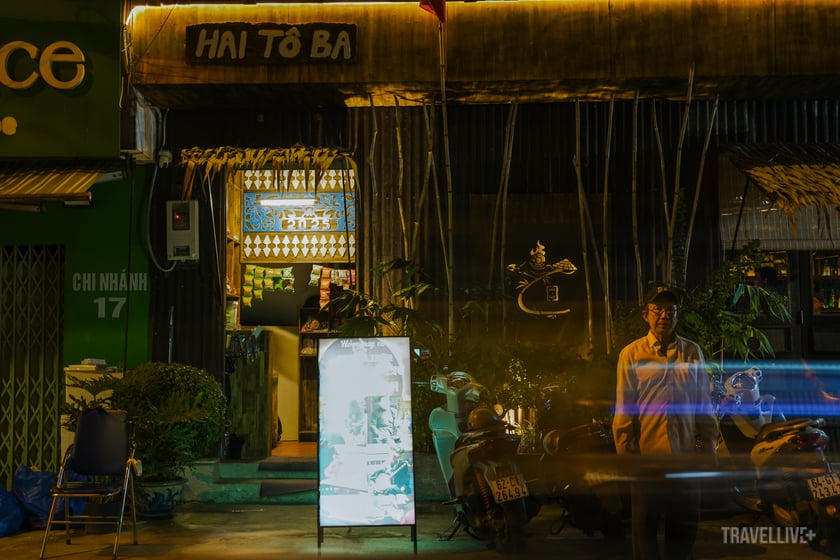
Hai Tô Bar has a distinctly Western Vietnam-style interface right from the front door.
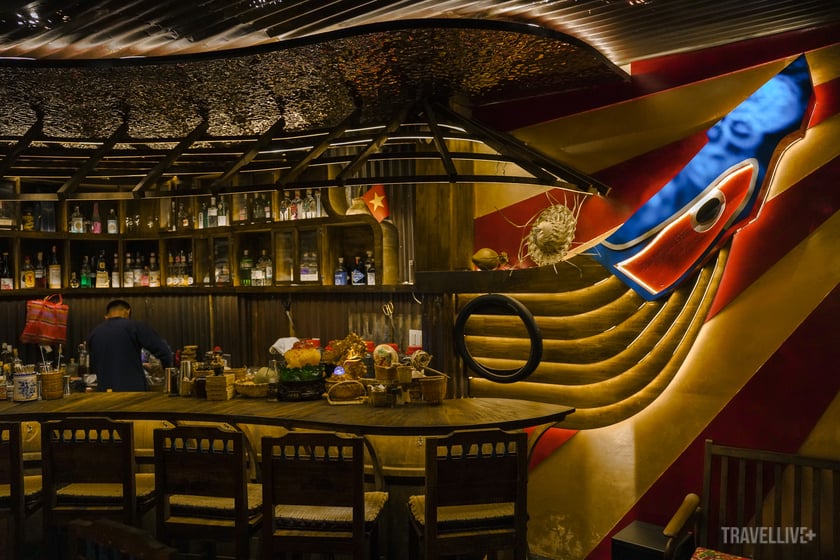
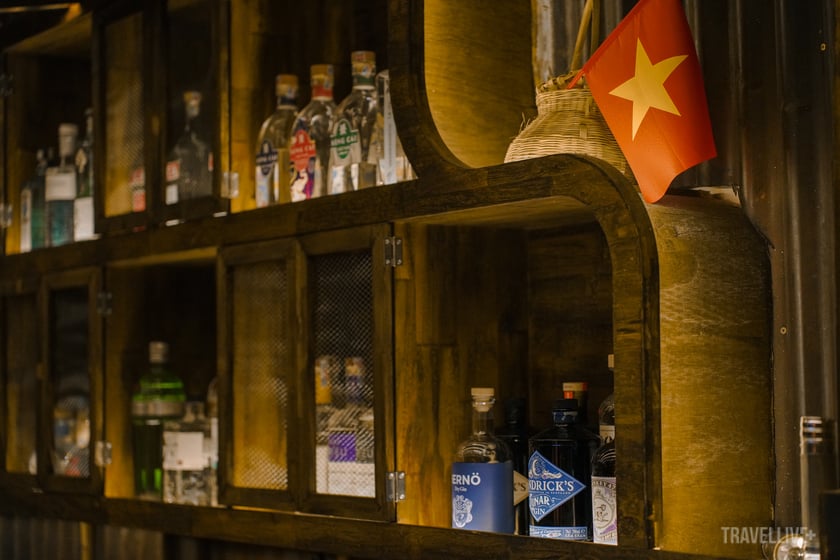
"In Saigon, there are already many bars with foreign styles. But bars with a Vietnamese style, specifically from the Mekong Delta, are almost non-existent," Thọ shared. "I want to create a place where customers, whether from the South or the West, can feel the genuine, generous spirit and the inherent beauty of our culture."
Stepping past the small grocery store right in front of the door – selling snacks reminiscent of childhood in the countryside – customers will find a space with a thatched roof, bamboo walls, wooden tables, and soft yellow lighting. Unconventional paintings depicting Western Vietnamese girls and boys skateboarding or wearing conical hats while holding skateboards create a visual playful atmosphere that is both unique and familiar. The menu is also a charming play on words: from traditional Vietnamese folk music cocktails and braised fish in clay pot to mooncakes, all are made with ingredients characteristic of the Western region, such as star fruit wine, wild mango, and fish sauce, combining sour, sweet, and salty flavors in the style of home.
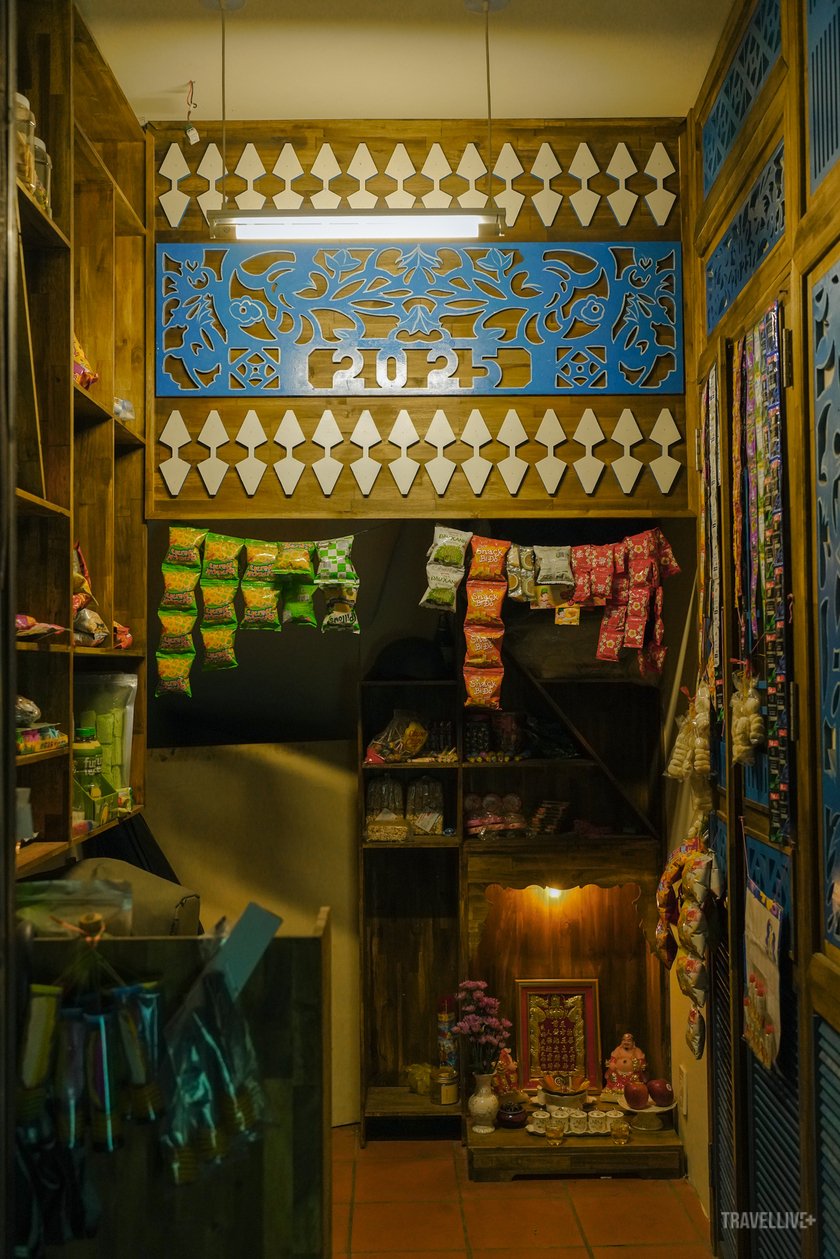
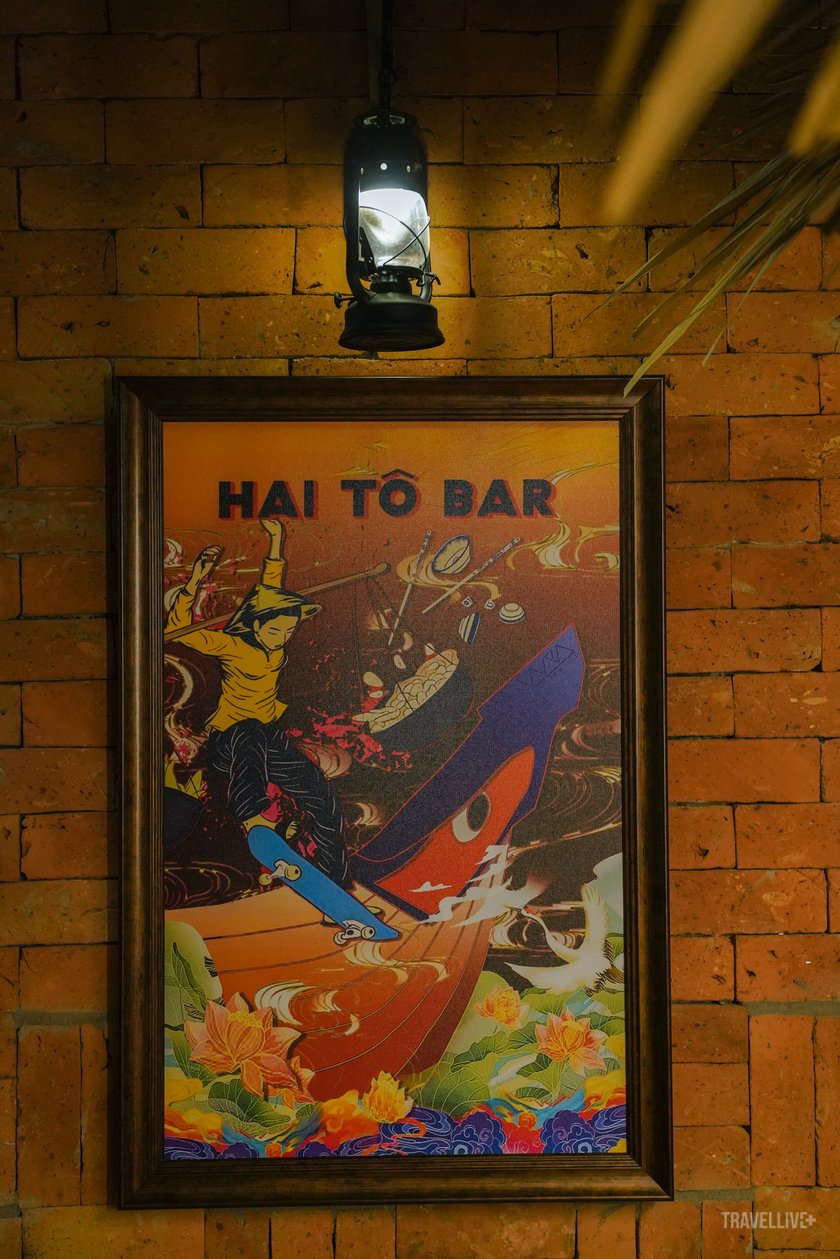
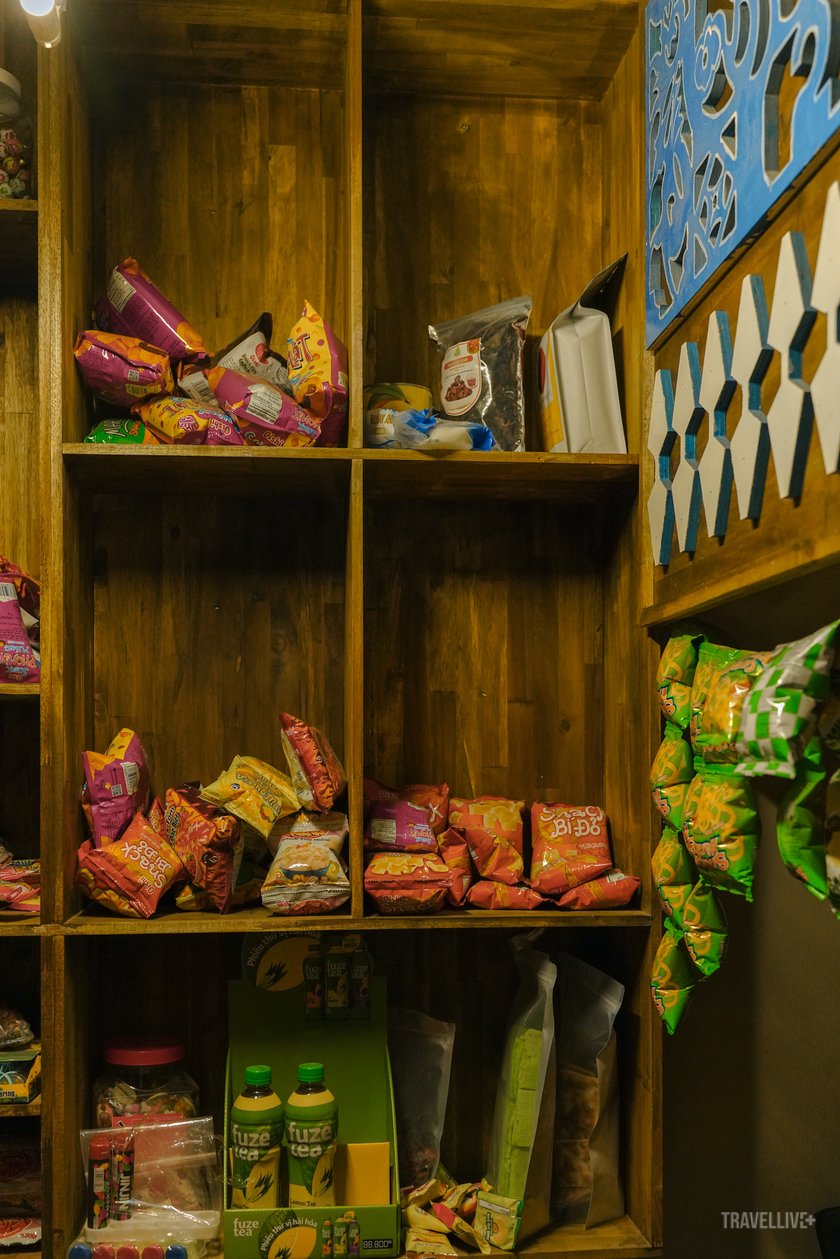
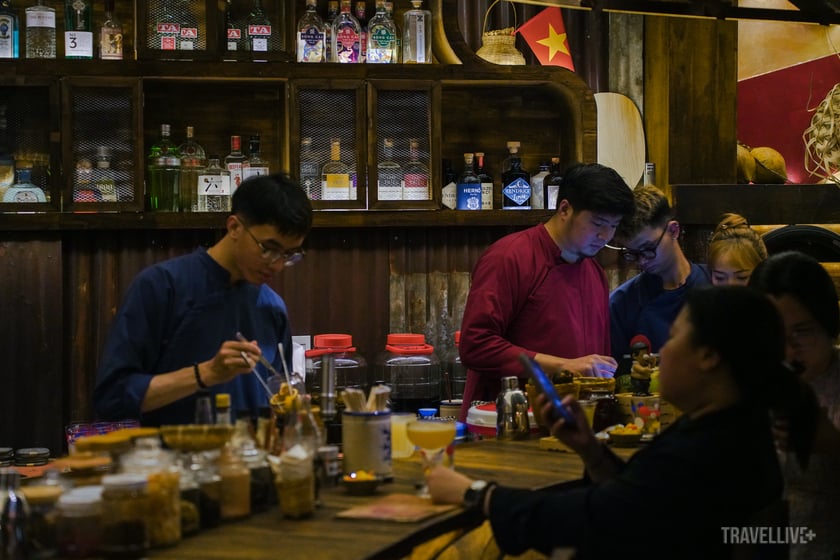
The owner, Mr. Lam Huu Tho (in the red shirt), is standing behind the counter preparing drinks.
But what makes this place even more special are the nights when traditional Vietnamese folk music is performed right in the middle of the small bar.
Music and singing in the middle of a bar.
From the very beginning of his design for the restaurant, Mr. Tho wanted to incorporate a part of the soul of Southern Vietnam – things that weren't just for display but were alive, resonant, so that customers could not only see but also hear, feel, and remember. And the first idea that came to his mind was a heritage of the Southwestern region of Vietnam, recognized not only in Vietnam but also worldwide: traditional Southern Vietnamese folk music (Don Ca Tai Tu).
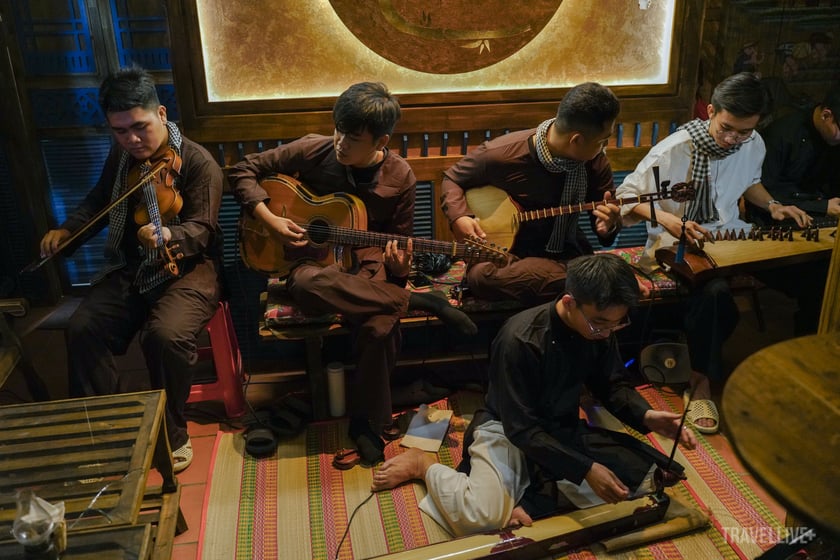
Don ca tai tu (Southern Vietnamese folk music) was recognized by UNESCO as a World Cultural Heritage in 2013.
This traditional musical genre emerged in the late 19th century, a fusion of Hue court ceremonial music, Hue folk songs, and Southern Vietnamese folk music. No stage, no backdrop; just a corner of a house, a boat, a summer afternoon… is enough for sweet melodies to resonate from the kìm and sến instruments, with simple, unadorned singing and improvisational performances. It is this unconstrained, intimate nature that makes đờn ca tài tử the first choice for the space that Mr. Thọ is creating.
Through social media, Mr. Tho found the "Don Ca Do Day" group – a group of amateur artists who started with small gatherings in parks, posting clips of their performances online as a way to keep their passion alive. Accepting an invitation from the restaurant, the group performed once or twice a month. They brought along zithers, lutes, lutes, guitars, and even violins, an unconventional combination that remained true to the spirit of amateur music.
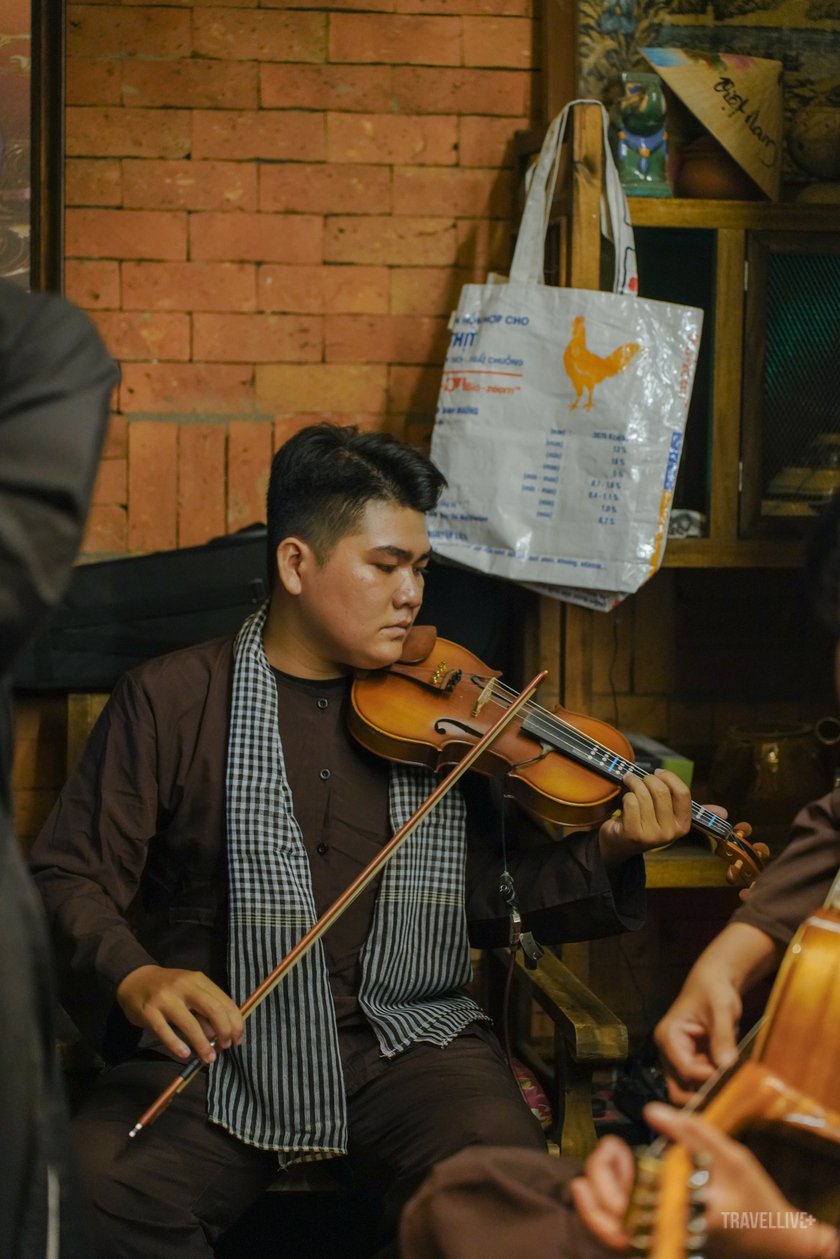
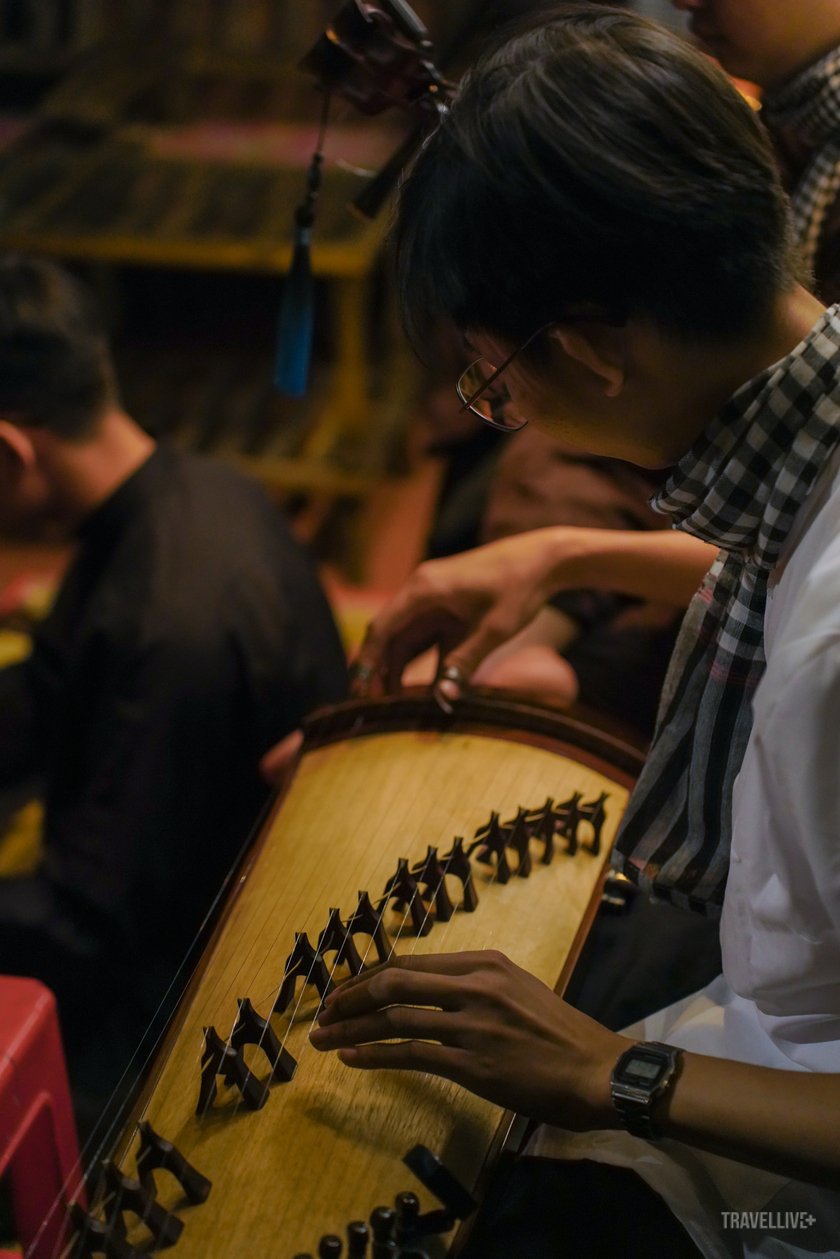
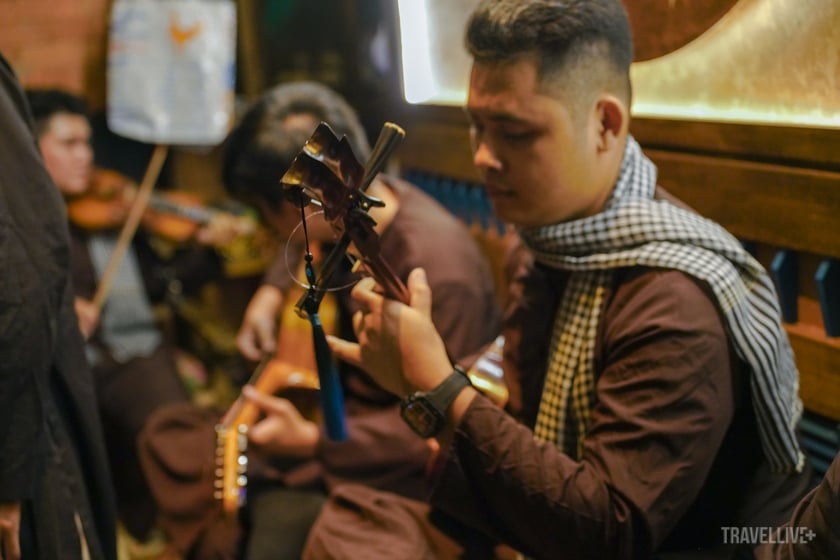
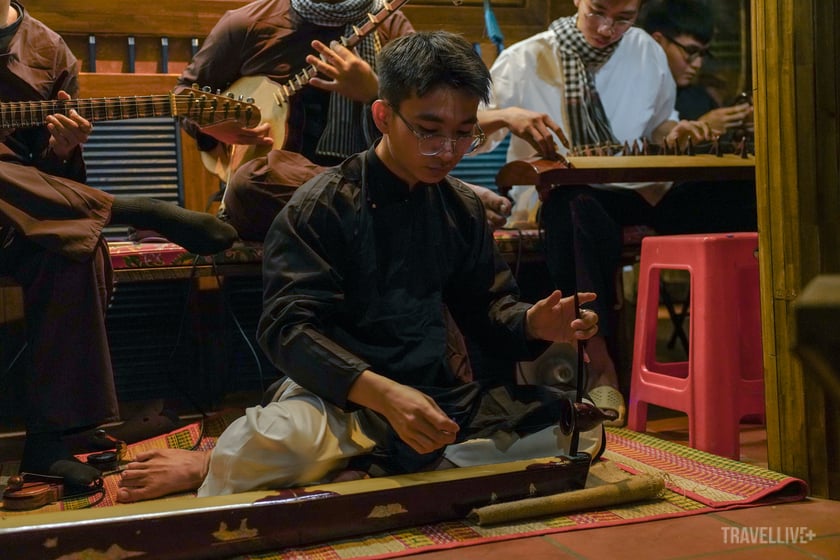
Members of the Don Ca Do Day group and musical instruments performing
The group leader, Do Thanh Phong, said: “Our group started with casual music sessions in the park, without much thought. When we were invited to perform in a space like Hai To Bar, we felt it was the perfect opportunity to connect with people who had never experienced this type of music before, as it perfectly embodied the spirit of amateur music in a friendly and intimate way.”
The group usually performs on a small mat spread in the middle of the restaurant, dressed in simple traditional Vietnamese clothing like "ba ba" and checkered scarves. Besides classic songs like "Dạ cổ hoài lang" and "Lý con sáo," they also create performances with a modern twist: improvisational monologues, short theatrical segments with witty, rhyming lyrics, and a distinctly Southern Vietnamese flavor. The group members take turns playing roles from father and mother to older sister and younger brother, leading the performance in a lively and natural way. Sometimes, the group also invites the audience to interact, with someone singing a line, someone playing an instrument, creating an open and friendly atmosphere.
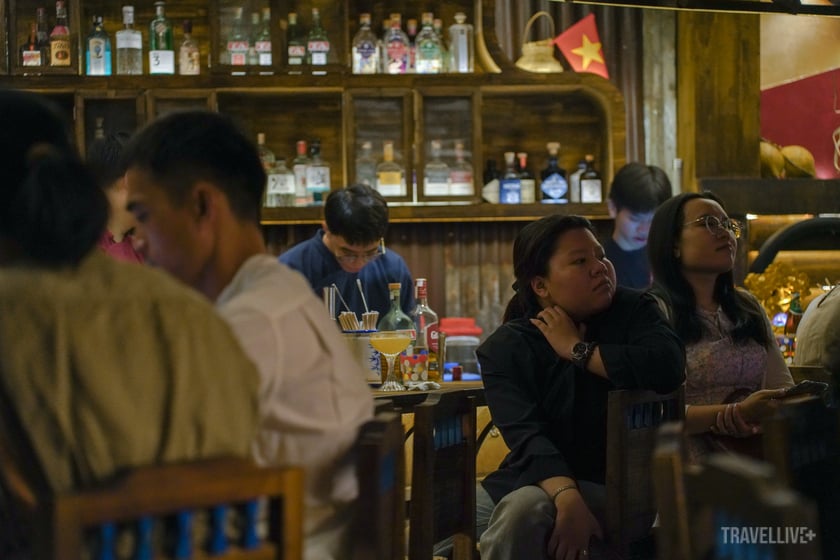
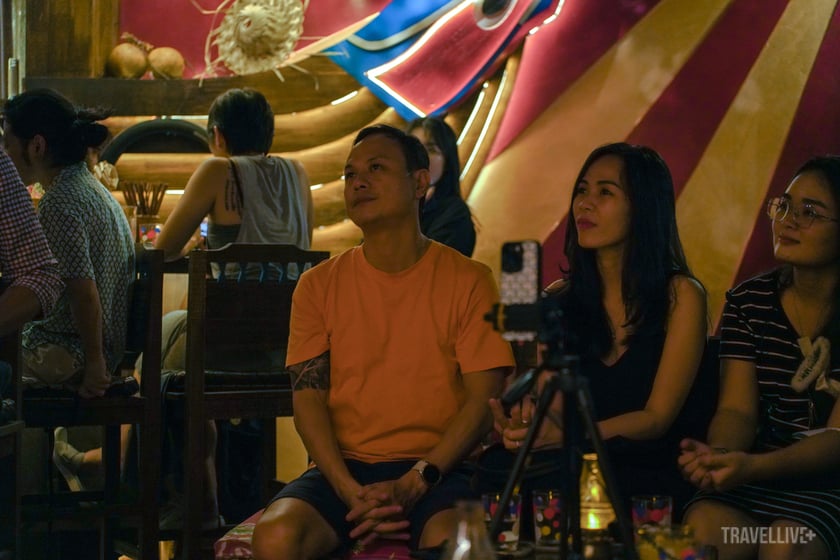
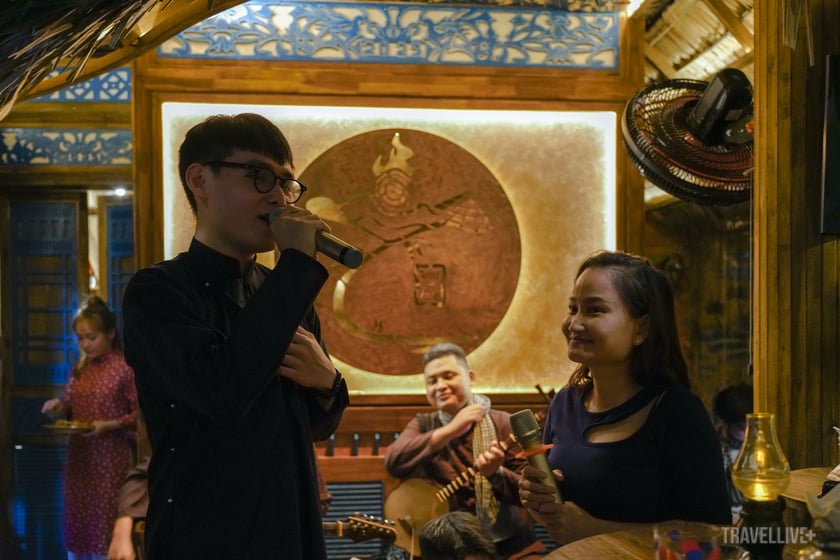
Audience members came up to interact with the band.
Lost in the song, the taste of wine lingers in my mind.
The applause and laughter were incessant, transforming the traditional folk music performances in Hai Tô from a conventional "artistic appreciation" into an emotional reunion between performers and audience, intimate, joyful, and distinctly Western Vietnam.
In the soft yellow light of the bar, cocktails swirling in their hands, many guests let themselves drift along with the rhythmic music, the melodious singing like a breeze rustling through rice fields in the countryside. The warm taste of the drink lingered on their tongues, while the folk songs soothed their hearts.
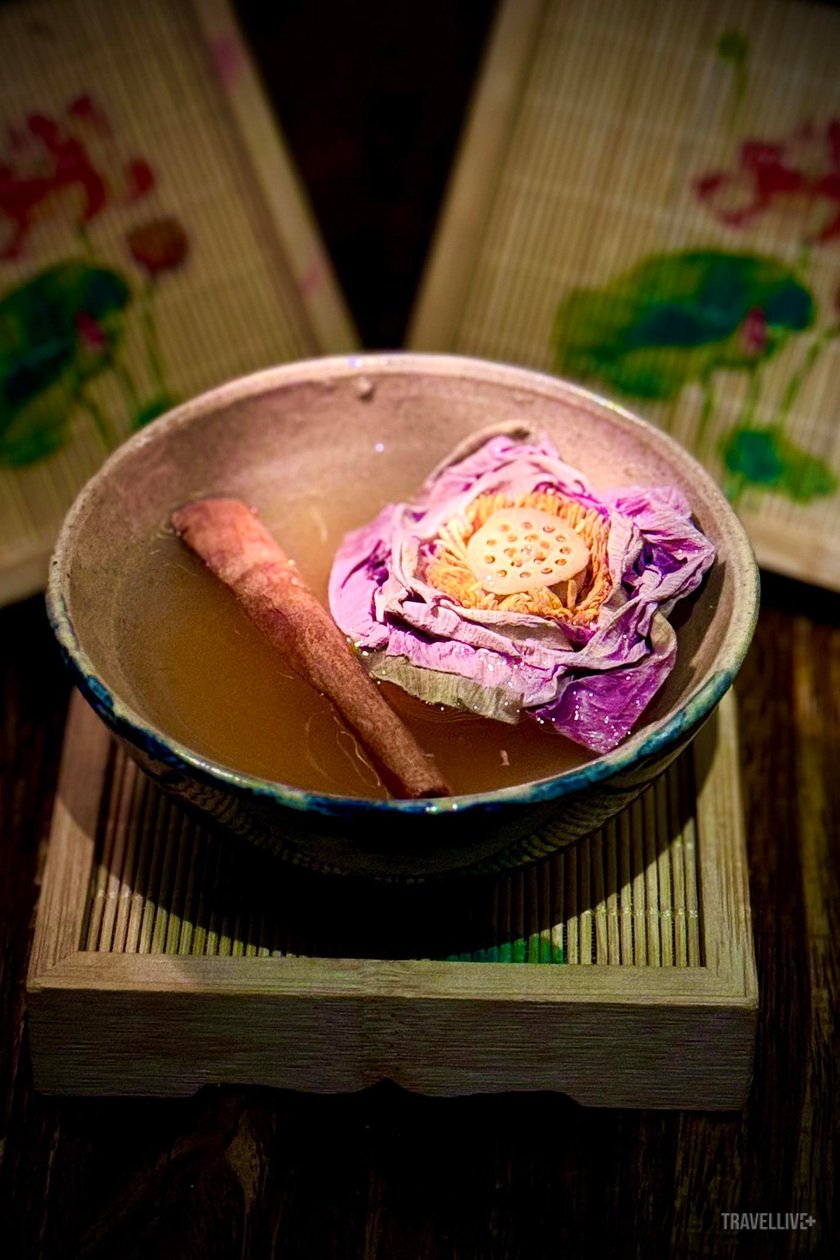
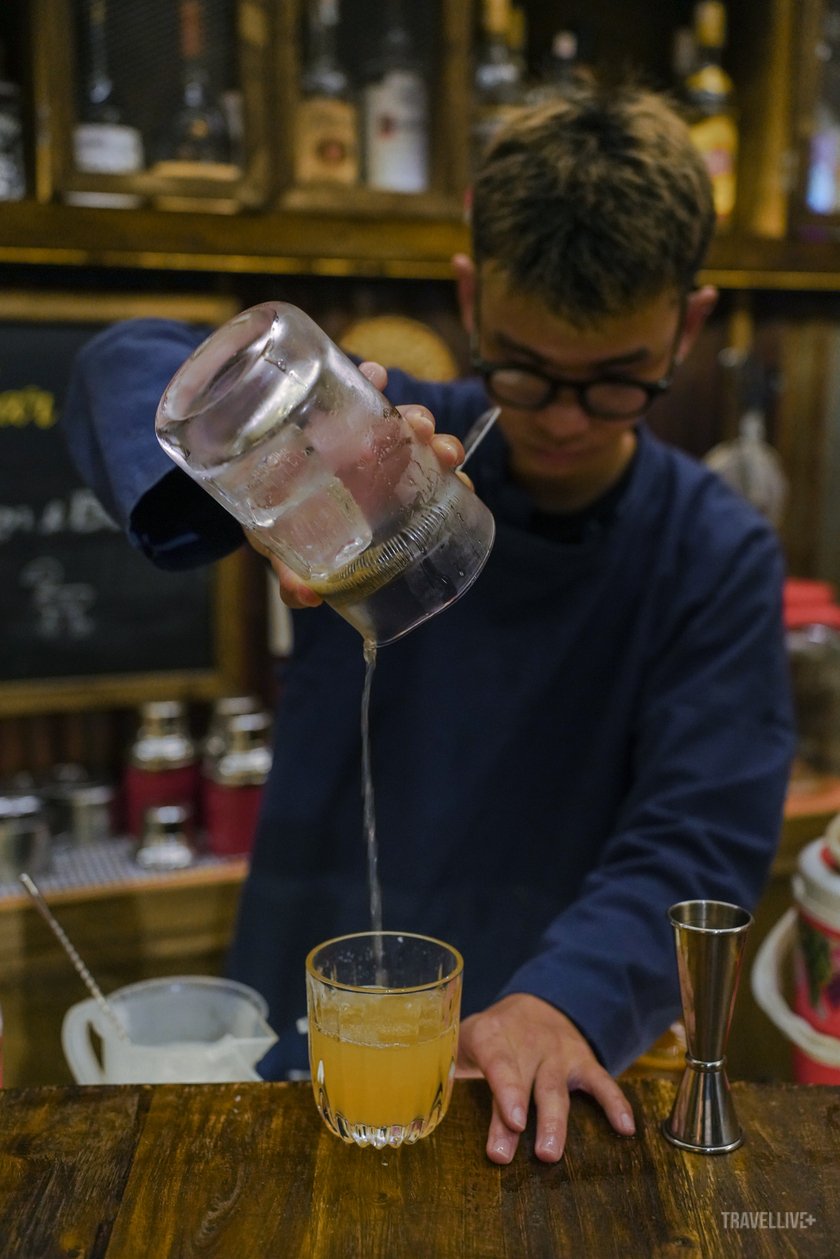
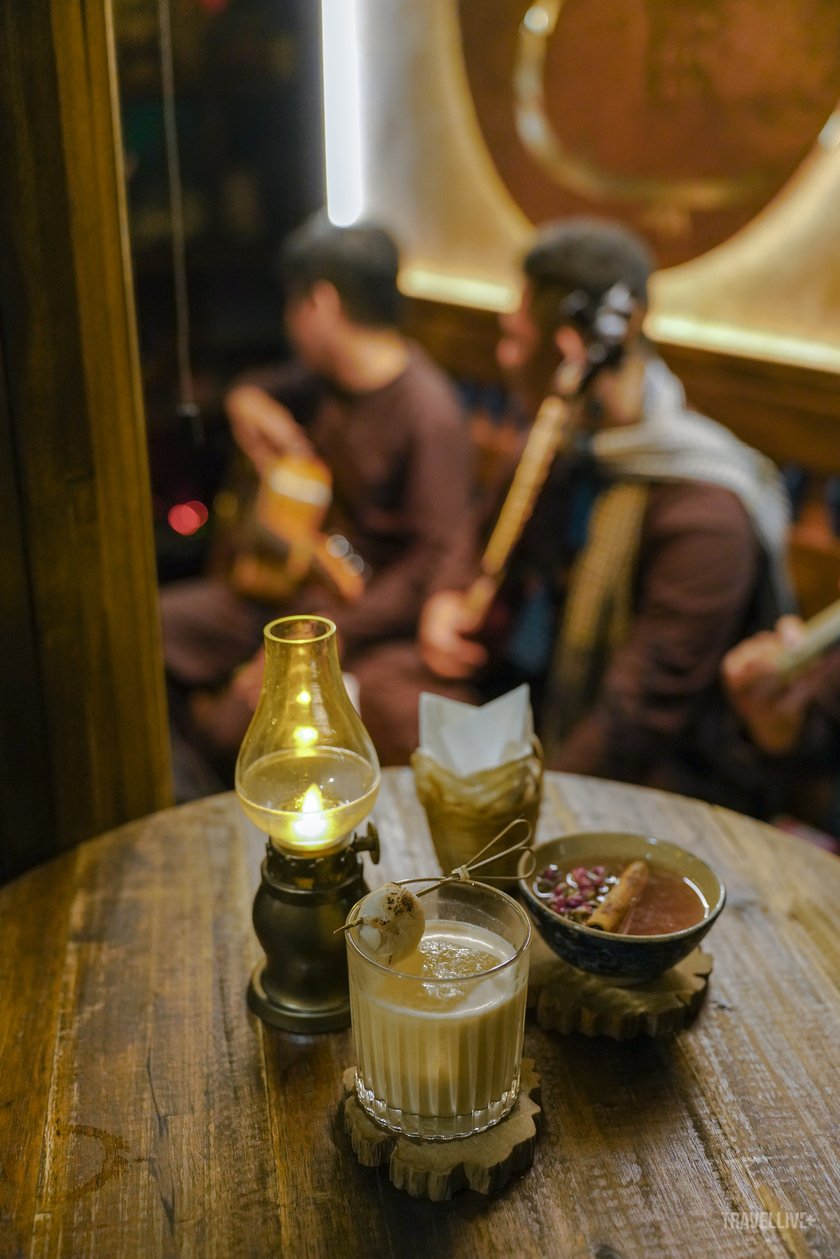
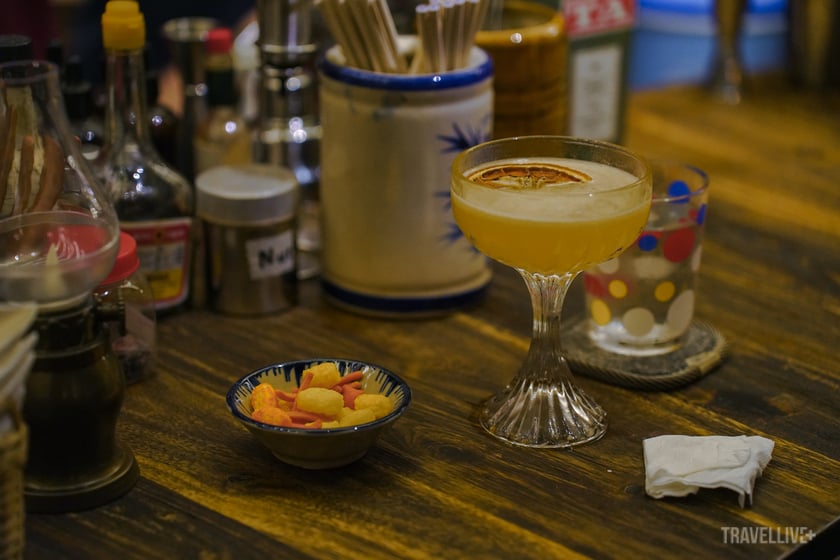
The atmosphere seemed to slow down: no more traffic noise, no more daily worries, just a small mat, the sound of the lute, and the charm of the Mekong Delta woven through each note and each lyric. For many, it wasn't just a relaxing evening, but a rare moment of tranquility – where art and life blended seamlessly.
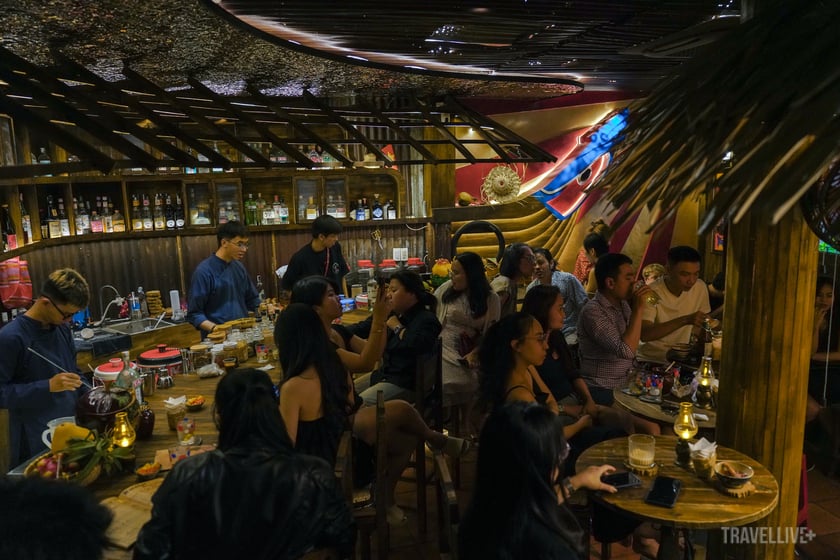
Every night, the bar is fully booked, with large crowds of customers coming to enjoy cocktails and listen to traditional Vietnamese folk music.
As night fell, the lights in the bar dimmed, and a cocktail of braised fish with star fruit was brought out, with its hint of sourness, sweetness, and a touch of fermented flavor. Suddenly, the sound of a zither rose, followed by the bầu lute, violin, and a melodious voice singing a familiar folk song. There, in the heart of the city, a truly authentic "musical gathering" existed, simple yet charming, quiet yet profound, making one want to linger a little longer, listen to another song, drink another glass, and let their mind drift to the waterways of the Mekong Delta.

 VI
VI EN
EN



